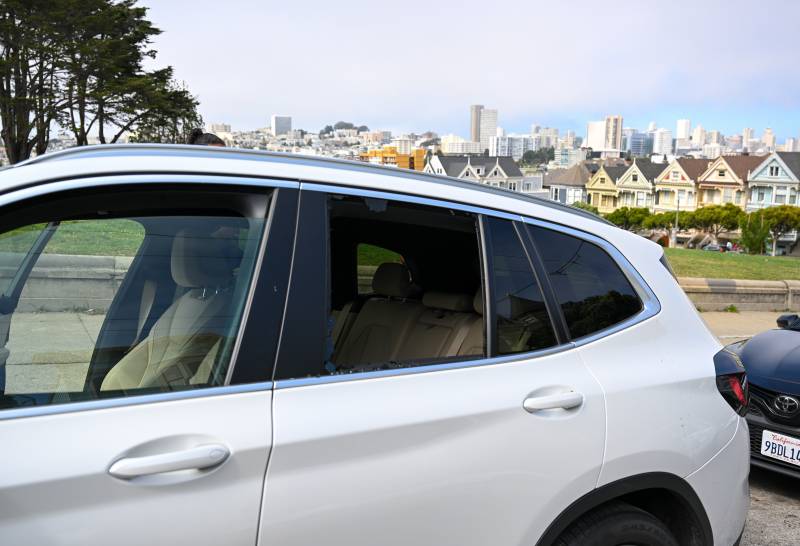A San Francisco lawmaker hopes to get a handle on the rash of brazen car break-ins throughout the city by changing state law to make it easier to prosecute suspects.
The new state bill introduced Thursday by state Sen. Scott Wiener would expand the legal definition of auto burglary to include the act of forcibly entering a vehicle with the intent to commit theft. That change would allow prosecutors to pursue burglary charges without the current hurdle of first having to prove that a car was locked.
“This is a commonsense measure to address an issue that has been plaguing San Francisco for a long time,” Wiener said Thursday during a press conference at San Francisco’s Palace of Fine Arts, one of the city’s iconic tourist destinations that have become a hotspot for car break-ins.
The new bill — Wiener’s third attempt at such legislation — comes amid mounting public frustration in San Francisco and other California cities over the frequency of break-ins and the dearth of prosecutions.
Car break-ins and smash-and-grab incidents have spiked since the start of the pandemic, giving San Francisco the dubious distinction of having one of the highest car break-in rates of any major American city. This year alone, there have already been more than 15,000 car break-ins here, San Francisco District Attorney Brooke Jenkins, who joined Wiener on Thursday, told reporters. The vast majority of those incidents, she noted, have not been prosecuted.
